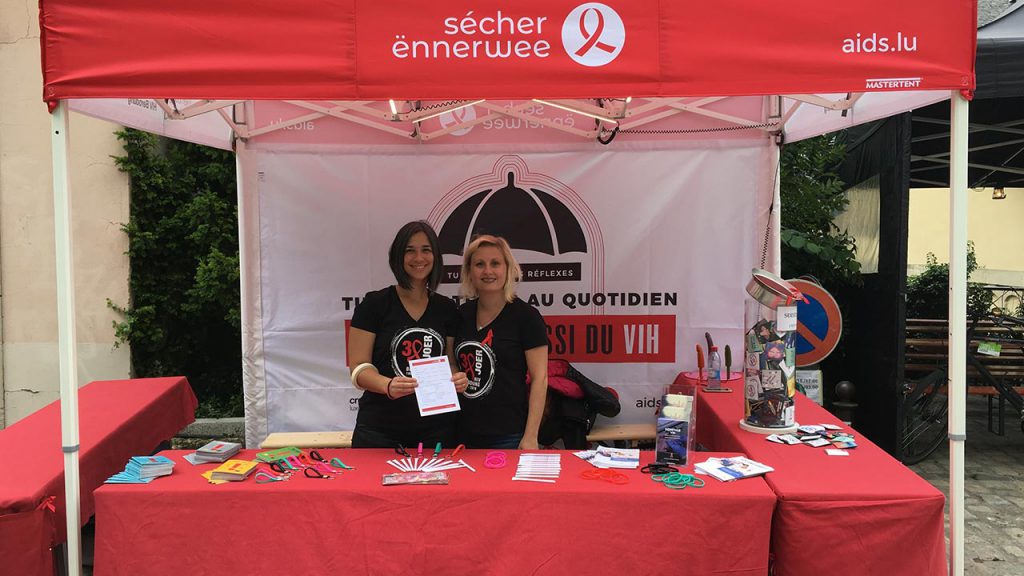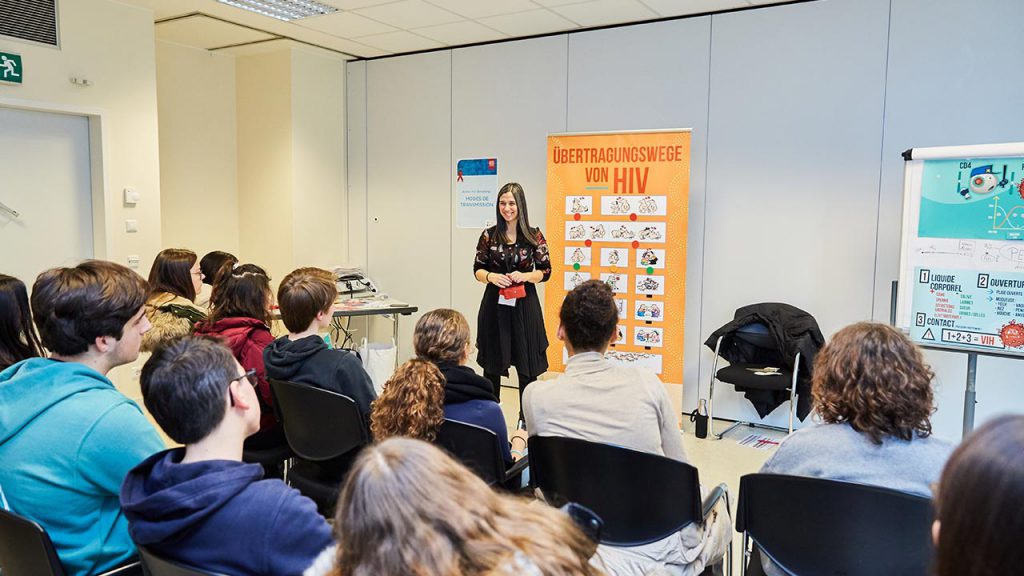
Condoms are the only means of protection against both HIV, STIs and unwanted pregnancy.
There are:

An HIV test is the only way to detect an HIV infection and thus provide access to treatment, which then makes the virus undetectable, safeguards health and prevents further transmission of HIV. This test, carried out via blood analysis or in the form of a rapid diagnostic test (RDT), detects the presence of anti-HIV antibodies in the blood. It is recommended to get screened 3 months after each exposure (if a condom breaks, slips off, or is not used, in case of injury or cut with an object soiled with blood or semen, sharing drug injection equipment).
PEP (post-exposure prophylaxis) is an emergency treatment that is taken after a situation posing a high risk of HIV transmission (if a condom breaks, slips off, or is not used, as well as in case of injury or cut with an object soiled with blood or semen, sharing drug injection equipment). The purpose of antiretroviral treatment is to prevent the virus from entering the cells of the immune system so as to reduce the risk of infection. To be effective, PEP must be started as soon as possible (within a few hours) after exposure and within 72 hours at the latest. After that time, PEP no longer provides protection against a new infection.
If there is a risk of infection, it is necessary to go as soon as possible and within 72 hours to the Service National des Maladies Infectieuses (National Service for Infectious Diseases) of the Centre Hospitalier de Luxembourg (CHL, 2nd floor), at 4 rue Barblé, Luxembourg-Strassen. A doctor will assess the risk and prescribe emergency treatment if needed.

Strict adherence to antiretroviral treatment can lower the viral load (concentration of the virus in the blood) to such a low level that it becomes undetectable. The January 2008 “Swiss Statement” established that a person who has had an undetectable viral load for a minimum of 6 months and does not have any other sexually transmitted infections becomes sexually non-contaminating. Thanks to their effectiveness, HIV treatments have become an effective means of prevention!
U=U or I=I or n=n (undetectable = untransmittable or indétectable = intransmissible or nicht nachweisbar = nicht übertragbar): a relief for HIV-positive people because they can no longer transmit the virus through sexual intercourse.
PrEP is a new strategy and an additional means of HIV prevention. It is aimed at HIV-negative people who are at high risk of becoming infected with HIV. It consists in taking antiretroviral drugs before and after the risk situation to prevent HIV from infecting cells, thus preventing HIV from taking hold in the body and multiplying. PrEP significantly reduces the risk, so it is crucial that the drugs be taken exactly as directed. PrEP does not protect against other STIs (syphilis, gonorrhoea, etc).
In Luxembourg, PrEP is available at the Service National des Maladies Infectieuses of the CHL and is managed by the CNS. For a medical consultation in order to obtain PrEP, contact the Service National des Maladies Infectieuses of the CHL on 4411 3091.
Prevention of mother-to-child transmission is an intervention that helps eliminate new infections in newborn children. Without treatment, there is a 20-45% risk that an HIV-positive woman will transmit HIV to her child during pregnancy, childbirth or breastfeeding. Thanks to antiretroviral treatment of the mother during pregnancy and of the baby during the first month of life, this risk has been reduced to less than 1% in Europe.
Risk reduction
This includes protecting oneself when handling sharps and using clean, single-use injection and sniffing equipment, thereby preventing the transmission of HIV and hepatitis C.
FREE AND ANONYMOUS TESTING
Free and anonymous rapid screening tests for HIV, hepatitis C and syphilis are organised:
Getting a blood test remains an alternative: it is carried out by taking a conventional blood sample. The blood is then analysed in a laboratory. The result comes in 2 to 3 days later.
Self-screening tests
Since July 2019, HIV self-tests have been available in pharmacies and Cactus supermarkets. Learn more